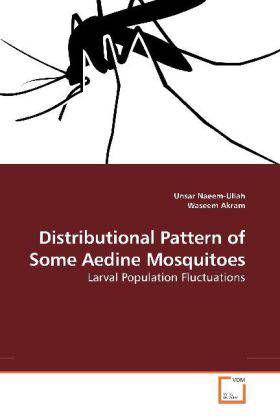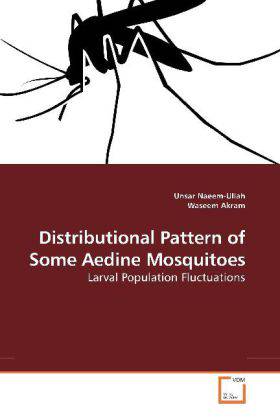
- Afhalen na 1 uur in een winkel met voorraad
- Gratis thuislevering in België vanaf € 30
- Ruim aanbod met 7 miljoen producten
- Afhalen na 1 uur in een winkel met voorraad
- Gratis thuislevering in België vanaf € 30
- Ruim aanbod met 7 miljoen producten
Zoeken
€ 67,45
+ 134 punten
Omschrijving
Aedine mosquitoes are widely distributed in many countries of South East Asia including Pakistan. The information on their prevalence and changing trends in breeding places is still fragmentary. So there is a need to address these concerns over space and time and see how these have affected the distribution of mosquitoes in our ecosystems. Therefore the present work has been proposed. Present studies on the spatio-temporal distribution of Aedini were carried out from 2006-2008. Agro-ecological zones of the Punjab, were explored to collect immature mosquitoes from a variety of habitats on seasonal basis. Different ecological, physico-chemical and geographical parameters were recorded. The present study has yielded 24 species of mosquitoes which include 11 from tribe Aedini. The species of major significance have been the two most potential forms that the primary vector of dengue Ae. aegypti that was recorded from Sandy Desert B, Rain-fed Lands and Northern Irrigated Plains and Ae. albopictus, a secondary vector of dengue recorded as immature from zones of Rain-fed Lands, Wet Mountains and Northern Irrigated Plains from latitude of 30o 25.838 towards north.
Specificaties
Betrokkenen
- Auteur(s):
- Uitgeverij:
Inhoud
- Aantal bladzijden:
- 176
- Taal:
- Engels
Eigenschappen
- Productcode (EAN):
- 9783639253214
- Verschijningsdatum:
- 30/04/2010
- Uitvoering:
- Paperback
- Formaat:
- Trade paperback (VS)
- Afmetingen:
- 152 mm x 229 mm
- Gewicht:
- 267 g

Alleen bij Standaard Boekhandel
+ 134 punten op je klantenkaart van Standaard Boekhandel
Beoordelingen
We publiceren alleen reviews die voldoen aan de voorwaarden voor reviews. Bekijk onze voorwaarden voor reviews.











